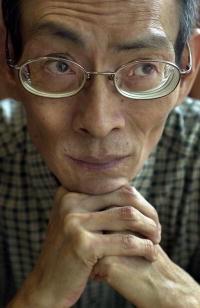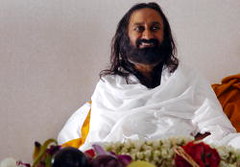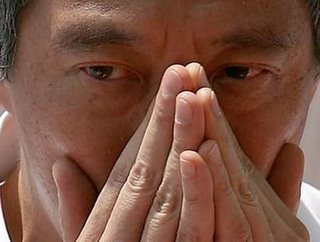ST June 30, 2006
Prosecution gets what it asked for in McCrea case
By Chong Chee Kin
THE Michael McCrea case is special, almost as special as the relationship he shared with the man he killed.
First, the Australian government asked the Singapore Government to promise it will not execute McCrea if he is extradited. Then it became apparent that he would not have faced the gallows anyway, since the charges brought against him would not have led to an execution on conviction.
Duh. Well, of course if the Singapore government had promised not to execute McCrea, then the prosecution would have brought lesser charges. You wouldn't proceed on murder, if you had already told the Australian government that McCrea wouldn't be hanged, right?
The prosecution IS part of the government, after all, and is directly involved in the extradition process. Furthermore the Constitution vests the prosecution with the power and discretion to decide what charges it wants to bring.
McCrea's lawyer Kelvin Lim dismissed the suggestion that the charges were reduced because of the Government's promise to Australia. He insists that the facts support his argument that McCrea did not commit murder.Heheh. If it was so obviously NOT murder, why would the Australian government bother to ask the Singapore government to promise not to execute McCrea? If it was so obviously NOT murder, McCrea couldn't possibly hang anyway.
'It's quite clear that it is not murder. How can it be murder when there was a sudden and grave provocation from the victims? McCrea was attacked and hit back in self-defence,' he said.
And how would McCrea's lawyer Kelvin Lim know why the prosecution reduced the charges? Did the prosecution explain to Kelvin its choice of charges? (No, the prosecution's practice is to be silent on its prosecutorial decisions).
Did Kelvin attend any of those top-secret meetings between our Foreign Affairs officers and the Australian diplomats? (No, that's all top secret as well).
Did the prosecution say that it reduced the charges NOT because of the Government's promise to Australia? (No, it was McCrea's lawyer who said so.)
As for these assertions by McCrea's lawyer:
He insists that the facts support his argument that McCrea did not commit murder..... well, these are what we call questions of fact, in the courtroom. Kelvin Lim's statements may be true, or they may not be true, or they may be partially true, but the point is that questions like these:
'It's quite clear that it is not murder. How can it be murder when there was a sudden and grave provocation from the victims? McCrea was attacked and hit back in self-defence,'
(1) was there really provocation from the victims?
(2) was it "sudden" or "grave"?
(3) was McCrea really attacked at all?
(4) did he really act in self-defence?
(5) etc etc
... are all questions not to be answered by McCrea's lawyers, but to be determined and decided by the judge, based on available evidence presented in court.
Provided that - the prosecution proceeds on murder charges.
And - if the accused claims trial.
And - if the defence raises the defence of sudden and grave provocation.
But none of this really matters, if the prosecution just proceeds on non-murder charges, and the accused just pleads guilty straightaway.
That is, we'll never know whether McCrea committed "murder" or not, because there never was a murder trial.
And there was never a murder trial, because the prosecution didn't proceed on a murder charge.
And the prosecution would never have proceeded on a murder charge, because the Singapore government had agreed that McCrea must not hang.
And if the Singapore government had never agreed to this, well, the Australian government just wouldn't have sent McCrea back to Singapore.
There. Hope it's all clear now.
Anyway, I think that this was a good result, all things considered. If the Singapore government had not entered into those arrangements with the Australian government, McCrea would never have been brought here and convicted at all.
Also, I'm not a fan of the death sentence, so I'm actually quite happy that McCrea did not have to die.
Reading my karmic tea leaves today, I sense also that in some strange way, the death of Australian Nguyen Tuong Van had helped to save the life of Michael McCrea. Certainly, the diplomatic fallout from Nguyen Tuong Van's case would have induced the Singapore authorities to move more carefully in this case.

"Please don't be sorry but instead celebrate the life
God has made possible through his love ...
Be of great faith; of greater courage and firm heart."
- Nguyen's last diary entry (written two hours before his execution).
+++++++++
Technorati: Singapore; Australia; crime; Asia.











